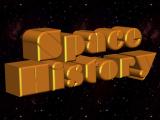If you are not already a subscriber, you are welcome to enter your email address here to sign up to receive the Space History newsletter on a daily basis. Under no circumstances will we release your legitimate email address entered here to outside persons or organizations, and it will only be used for mailing the specific information you have requested.
| Enter your email address here: |
Unsubscribe instructions are included in every newsletter issue in case you decide you no longer wish to receive it.
Note: We record the IP address from which subscriptions are entered to help prevent SPAM abuses.
Race To Space
Someone will win the prize...
... but at what cost?
Visit RaceToSpaceProject.com
to find out more!
1706
Born, Benjamin Franklin, American writer, inventor, publisher, and ambassador
Dr. Benjamin Franklin (17 January 1706 - 17 April 1790) was an American journalist, publisher, author, philanthropist, abolitionist, public servant, scientist, librarian, diplomat, and inventor. One of the leaders of the American Revolution, he also was well known for his many quotations and his experiments with electricity. Franklin was a member of the Freemasons, corresponded with members of the Lunar Society and was also elected a Fellow of the Royal Society.
See also Surprising Facts About Benjamin Franklin
ref: en.wikipedia.org
1786
Pierre Mechain discovered Comet 2P Encke, which has the shortest period (3.3 years) of any "reasonably bright" comet.
ref: en.wikipedia.org
1857
Born, Eugene Augustin Lauste, developer (first sound-on-film recording)
ref: en.wikipedia.org
1893
A. Charlois discovered asteroid #354 Eleonora.
1901
M. Wolf and L. Carnera discovered asteroid #466 Tisiphone.
1924
B. Jekhovsky discovered asteroid #1013 Tombecka.
1928
Anatol M. Josepho, of New York, NY, received a patent for the first fully automatic photographic film developing machine. Early space probes captured images on film, processed by similar systems, which were then scanned to send the pictures to Earth.
ref: patents.google.com
1943
Born, Daniel Charles Brandenstein (at Watertown, Wisconsin, USA), Captain USN, NASA astronaut (STS 8, STS 51G, STS 32, STS 49; over 32d 21h total time in spaceflight)

Astronaut Daniel C. Brandenstein, NASA photo (22 August 1984)
Source: Wikipedia
ref: en.wikipedia.org
1962 20:00:00 GMT
Neil Armstrong, a NASA civilian pilot, flew X-15 mission # 48 to an altitude of 133,500 ft (40.691 km, 25.284 mi) with a maximum speed of 3765 mph (6059 kph, Mach 5.51).
ref: en.wikipedia.org
1963
Joe Walker flew VO Alt, IR expt Test/Technology X-15 mission # 77, the first civilian flight above 80 km, to 271,700 ft (82.814 km, 51.458 mi) altitude and 3677 mph (5918 kph, Mach 5.47) speed, earning the second set of USAF definition astronaut wings.
ref: en.wikipedia.org
1969 06:50:47 GMT
USSR Soyuz 4 landed with a crew of three after launching with one aboard and docking with Soyuz 5 in orbit .
Soyuz 4 was launched 14 January 1969, the first manned spacecraft launched by the USSR during the winter. On board was cosmonaut Vladimir Shatalov on his first flight. The aim of the mission was to dock with Soyuz 5, transfer two crew members from that spacecraft and reenter. The two spacecraft docked on 16 January, the first time two manned spacecraft had docked. Khrunov and Yeliseyev immediately began preparing for their EVA aboard Soyuz 5. Volynov, who would remain on Soyuz 5, filmed them donning their Yastreb space suits. On their 35th revolution of Earth aboard Soyuz 5, they exited the spacecraft, on the second ever Soviet spacewalk. One of Khrunov's lines became tangled and he accidentally closed the tumbler of his suit ventilator. Although he freed the line, the incident distracted Yeliseyev who did not set up the movie camera on the orbital module before exiting the spacecraft. Consequently, there is no film of the historic EVA, only a poor video transmission. The spacewalkers delivered newspapers, letters, and telegrams printed after Shatalov lifted off to help prove that the transfer took place since they returned to Earth a day earlier than Soyuz 5. Soyuz 4 and 5 separated after being docked 4 hours 35 minutes. Soyuz 4 reentered on 17 January 1969 and landed 100 km southwest of Karaganda, now in Kazakhstan.
ref: nssdc.gsfc.nasa.gov
1976 23:28:00 GMT
The Hermes communications test satellite was launched from Cape Canaveral, Florida on a Delta rocket, a joint effort of the Canadian Communications Research Centre, NASA and the European Space Agency.
ref: nssdc.gsfc.nasa.gov
1997
Died, Clyde Tombaugh, astronomer (discovered Pluto, 1930)
ref: en.wikipedia.org
We are going to run out of oil!
Visit SpacePowerNow.org
to help fix the problem.
SpacePowerNow.org - For Human Survival
Please help support our efforts by shopping from our sponsors.
This newsletter and its contents are Copyright © 2006-2026 by The L5 Development Group. All rights reserved. - Publication, in part or in whole, requires previous written permission. - Academic or personal-use citations must refer to http://L5Development.com as their source. Thank you for your cooperation.
Space History Department
Resources
The L5 Development Group Home Page
The L5 Development Group Keyword Access System
Space History for January 17 /
Webmaster /
Script last modified August 23, 2018 @ 6:05 am
Copyright © 2006-2026 by The L5 Development Group. All rights reserved.
Hosted by FKEinternet






